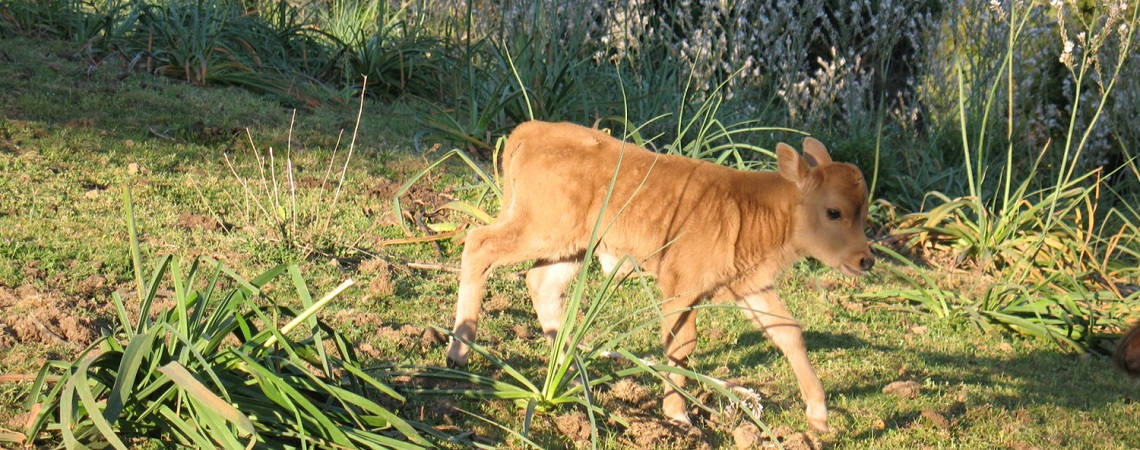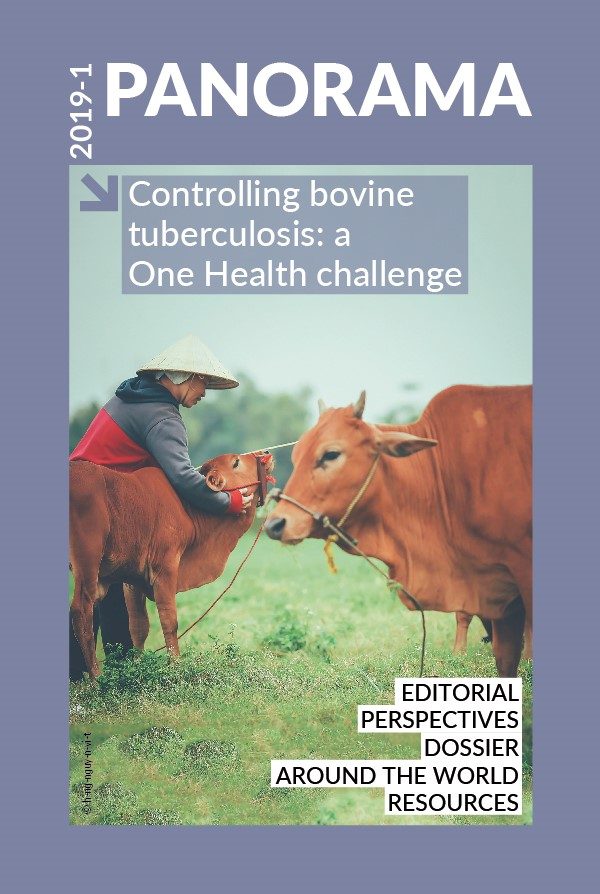Dossier Posted on 2019-04-29 18:40:56
Efficacy of oral BCG vaccination in protecting free-ranging cattle
(Abstract from manuscript)
Keywords
Authors
Graham Nugent(1), Ivor J. Yockney(1), Jackie Whitford(1), Frank E. Aldwell(2) & Bryce M. Buddle(3)*
(1) Manaaki Whenua – Landcare Research, PO Box 40, Lincoln, 7640, New Zealand.
(2) Centre for Innovation, University of Otago, Dunedin, New Zealand.
(3) AgResearch, Hopkirk Research Institute, Palmerston North, New Zealand.
* Corresponding author: bryce.buddle@agresearch.co.nz
The designations and denominations employed and the presentation of the material in this article do not imply the expression of any opinion whatsoever on the part of the OIE concerning the legal status of any country, territory, city or area or of its authorities, or concerning the delimitation of its frontiers and boundaries.
The views expressed in this article are solely the responsibility of the author(s). The mention of specific companies or products of manufacturers, whether or not these have been patented, does not imply that these have been endorsed or recommended by the OIE in preference to others of a similar nature that are not mentioned.
A field vaccination trial was undertaken in New Zealand which included 1,286 effectively free-ranging cattle stocked at low densities in a remote 7,600 ha area; 55% were vaccinated using a high dose (107–8 colony forming units [cfu]) of Mycobacterium bovis BCG (Danish strain 1311) (see the original research article, Efficacy of oral BCG vaccination in protecting free-ranging cattle from natural infection by Mycobacterium bovis, published in Veterinary Microbiology [2]). Vaccine was administered orally in all but 34 cases (where it was injected). The cattle were exposed to natural sources of M. bovis infection in cattle and wildlife, most notably the brushtail possum (Trichosurus vulpecula). Cattle were slaughtered at 3–5 years of age and inspected for tuberculous lesions, with mycobacteriological culture of tissues from almost all animals. The prevalence of M. bovis infection was 4.8% among oral BCG vaccinates, significantly lower than the 11.9% in non-vaccinates.
Vaccination appeared to reduce the incidence of infection, and to slow disease progression substantially in cattle that did become infected. Based on apparent annual incidence, the protective efficacy of oral BCG vaccine was 67.4% for preventing infection, and was higher in cattle slaughtered soon (within 1–2 years) after vaccination. Skin-test reactivity to tuberculin was initially elevated, being high in vaccinates re-tested 70 days after oral vaccination but not in non-vaccinates, although reactor animals had minimal response in gamma-interferon blood tests. However, in re-tests conducted more than 12 months after vaccination, skin-test reactivity among vaccinates did not differ significantly from that in non-vaccinates. These results indicate that oral BCG vaccination could be an effective tool for greatly reducing detectable infection in cattle.
A subsequent similar trial in the same area involving a much lower dose (3 x 105 cfu) of BCG, delivered by injection, reduced the apparent annual incidence of abattoir-detectable infection by 87% [3].
Highlights
- Bovine tuberculosis is difficult to eliminate from livestock where infected wildlife is present.
- Oral BCG vaccination was trialled in free-ranging New Zealand cattle exposed to a combined cattle and wildlife tuberculosis reservoir.
- Vaccination showed 67.4% efficacy in preventing infection and also slowed disease progression in infected cattle.
- Vaccination of livestock could be useful where tuberculosis persists in wildlife reservoirs.
DOI of the original research article published in Veterinary Microbiology: https://doi.org/10.1016/j.vetmic.2017.07.029
References
- Buddle B.M., Vordermeier H.M., Chambers M.A. & de Klerk-Lorist L.M. (2018). – Efficacy and safety of BCG vaccine for control of tuberculosis in domestic livestock and wildlife. Front. Vet. Sci., 5 (Art 259). https://doi.org/10.3389/fvets.2018.00259.
- Nugent G., Yockney I.J., Whitford J., Aldwell F.E. & Buddle B.M. (2017). – Efficacy of oral BCG vaccination in protecting free-ranging cattle from natural infection by Mycobacterium bovis. Vet Microbiol., 208, 181–189. https://doi.org/10.1016/j.vetmic.2017.07.029.
- Nugent G., Yockney I.J., Cross M.L. & Buddle B.M. (2018). – Low-dose BCG vaccination protects free-ranging cattle against naturally-acquired bovine tuberculosis. Vaccine, 36 (48), 7338–7344. https://doi.org/10.1016/j.vaccine.2018.10.025.










